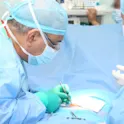
Health
07 Oct 2016
Safe Work Under the Sun
European outdoor workers are at great risk of developing non-melanoma skin cancer – so great that statistically speaking, in long-term outdoor workers, some 75-90% will develop the disease over their life time. While the numbers are startling, so is the lack of awareness of the situation. Ironically this lack of awareness is especially prevalent among outdoor workers, i.e. the people most at risk of developing non-melanoma skin cancer as a result of their occupational sun exposure. Given that skin cancer is in fact preventable, it seems an opportunity missed by not adequately informing individuals and adopting better workplace practices. Protecting workers from overexposure to UV makes total sense when we think about the savings in subsequent healthcare cost burden and even more importantly, avoidance of individual suffering and familial stress caused by skin cancer. At this year’s European Academy of Dermatology and Venerology (EADV) Congress, Prof. Swen Malte John (Professor and Chairman at the Department of Dermatology, Environmental Medicine, Health Theory, University of Osnabrueck, Germany), explained the situation: “Solar UV irradiation is now classified as a group 1 carcinogen by the WHO, being in the same category as cigarette smoking, asbestos and plutonium, yet there is no legislation in place […]













